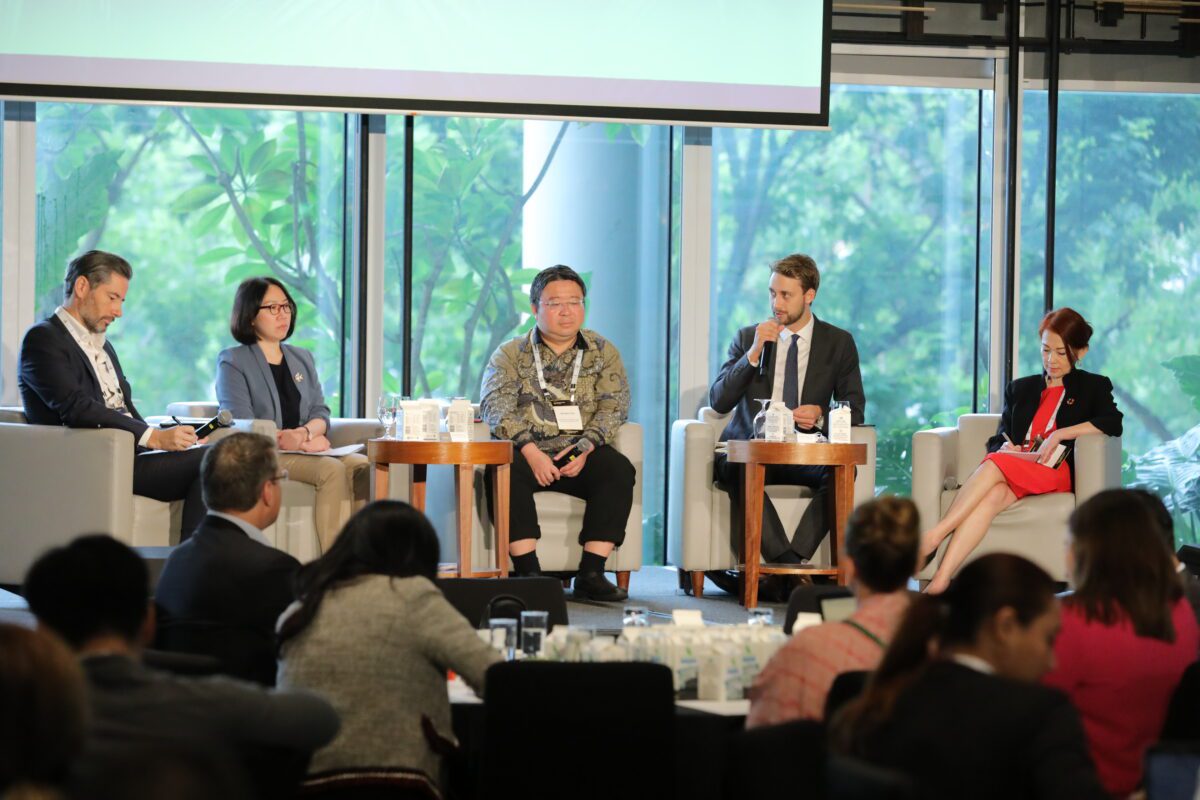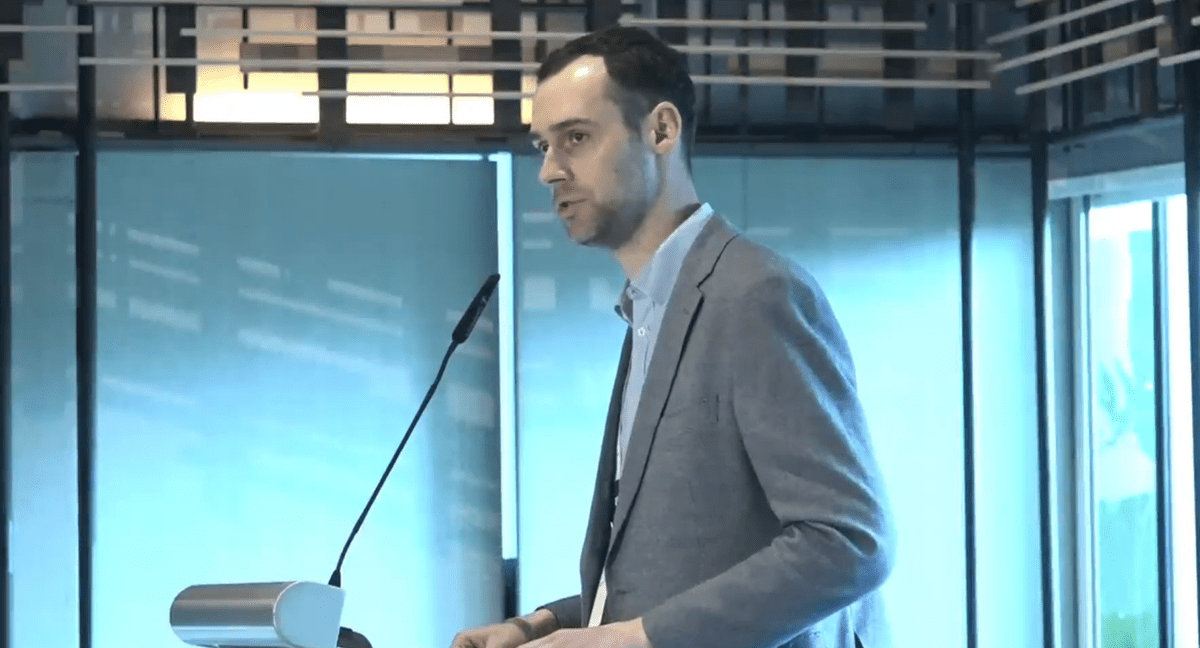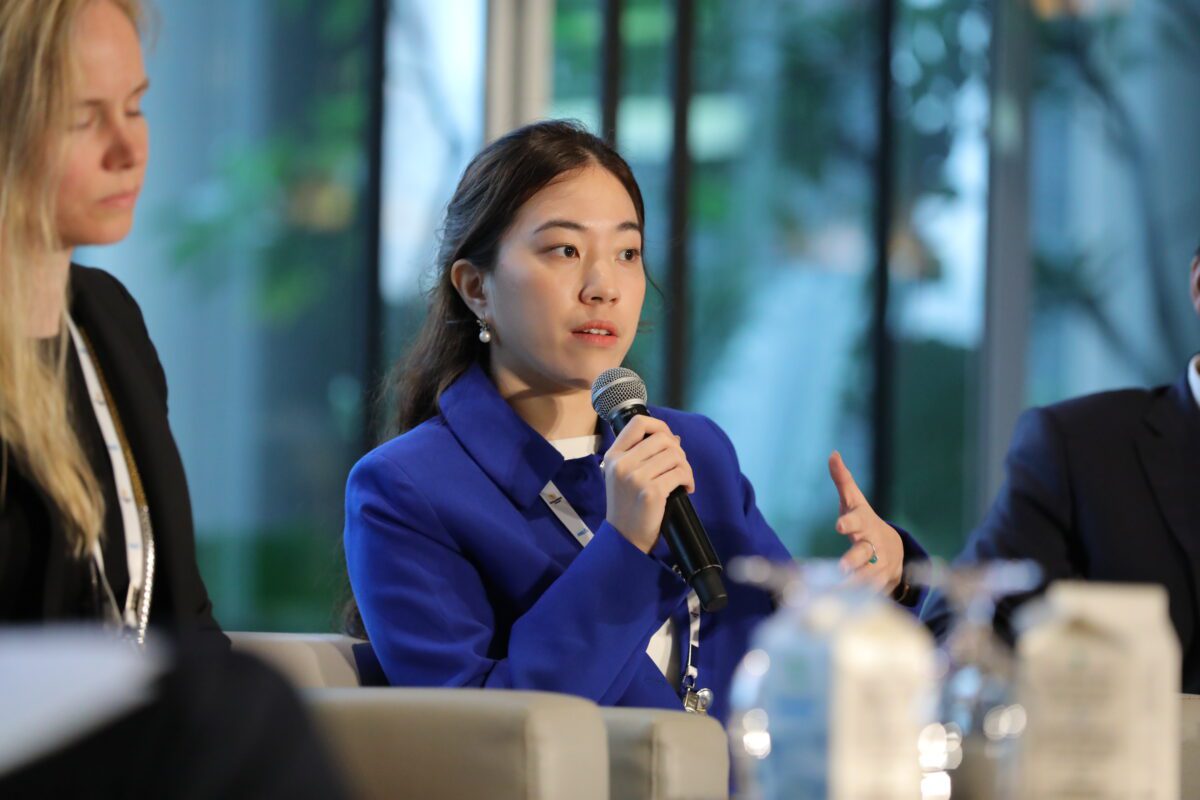Inaugural Singapore Forum highlights stark challenges & opportunities for regional leadership
The inaugural Singapore Carbon Market & Investor Forum has concluded with over 350 delegates coming together from across the Asia-Pacific region to explore the region’s immediate challenges in transforming its economic and emissions pathway, as well as the opportunities at its disposal for individual countries and the region to collectively accelerate progress.
Held in Singapore for the first time against a backdrop of extreme climate events, the two-day conference reinforced the collective responsibility to build policy and programs to boost investment in solutions at our disposal, said CMI CEO John Connor.
“Economic transformation across Asia will be crucial to the fate of global climate goals and why we held our inaugural overseas forum here.”
“We face urgent climate and biodiversity challenges as a global community, which requires a collaborative, multi-lateral effort to respond. Knowledge sharing and capacity building will be critical in this process, and our first offshore event has been an important step in this regard.”
“The last two days has reinforced the breadth and scale of this challenge, but also the level of complexity and nuance in accelerating climate action in different regions and markets across Asia.”
“The carbon market in particular doesn’t have the luxury of time that some other markets and commodities have afforded in their development, so there will be growing pains, but it’s important we learn from them and continue to improve.”
“As was repeated by many here, carbon markets are a means to the end of boosting climate finance and investment. The urgency and scale of the challenge requires its contributions to be effective and targeted, while also helping to achieve sustainable development goals.”
Connor also pointed to the comments of one of the Forum’s keynote speakers, Frederick Teo, CEO of Singapore based investment platform GenZero in summarising the role that carbon markets can play:
“We are not in the business of offsets and credits alone. We are in the business of trying to deliver fundamental decarbonisation solutions and to deliver real positive climate impact.”
“Carbon markets allow us to have a very effective way of being able to scale up finance to lower the cost premium associated with some of these new solutions and allow them to accelerate faster than they otherwise would,” said Teo.
Key speaker quotes:
Tom Moody, SE Asia Climate and Technology Director, UK Foreign, Commonwealth and Development Office
“The region benefits from some of the most abundant natural forests and biodiversity of the planet, which benefit all of us. Carbon pricing is an important tool to appropriately value and protect those assets.”
Mara Chiorean, Director, Sustainable Finance, ANZ
“Efficient and effective capital allocation will be crucial if we are to close the $3 – 5 Trillion annual gap – out of a $9 Trillion annual need – in [global] investment currently.”
Thomas Brzostowski, Interim Singapore Country Director, The Nature Conservancy
“The science is really clear, there’s going to be no path to reach global climate goals without unlocking the power of nature-based solutions…protecting these ecosystems, restoring degraded habitats and supporting farmers and landowners with regenerative land use practices has the potential to realise about one-third of the emissions reductions needed to limit global warming and keep the climate within safe boundaries.”
Vivek Dugar, Director, WeAct
“New carbon projects can percolate right into the social fabric of the planet, and uplift whole communities.”
Heather Layzell, Principal – Sustainability & Climate Change, Aurecon
“We have to ask ourselves what do we want carbon markets to do? We need them to accelerate action by bringing forth decarbonisation. Carbon offsets are inherently finite but are critical as they provide a necessary price signal to enable that decarbonisation to occur.”
Michael Blanding, Leader – Sustainability & Impact Investing, Berge Bulk
“Even though I cannot honestly say that my customers are eagerly happy to pay a premium for carbon neutral shipping today, I think we believe it’s building goodwill with customers, and at the same time with our people and our future pipeline of talent.”
Meredith Read, Manager – Decarbonisation, Orica
“What works for big corporates is confidence in the policy of the day, and the maintenance of that policy over the lifetime of the project to guarantee investment.”
Patrick Buergi, Managing Director Japan, Senior Advisor Innovation & Co-Founder, South Pole
“Critics should draw attention to limitations within carbon markets, and markets must improve where they can, however they should also offer alternative solutions that can channel finance into activities such as avoiding deforestation.”
Zoe Whitton, Managing Director, Head of Impact, Pollination
“What [this week’s] discussions have revealed is that we are now in implementation stage. We’re trying to do it, and do it at scale. It presents challenges, but it is also a massive opportunity.”
Event media releases:
Singapore and Australia aim to boost regional trading in clean energy and green commodities
Singapore expands regional carbon ties, Malaysia readies carbon market strategy
Carbon markets can deliver trio of benefits, environment group says
The climate change fight must be a fight against poverty, investors told
Carbon markets must become more accessible, experts warn
Pressure grows for stronger, faster decarbonisation from investors, insurers, customers and staff
About the Carbon Market Institute
The Carbon Market Institute (CMI) is a member-based institute accelerating the transition towards a negative emissions, nature positive world. It champions best practice in carbon markets and climate policy, and its over 150 members include primary producers, carbon project developers, Indigenous organisations, legal, technology and advisory services, insurers, banks, investors, corporate entities and emission intensive industries. The positions put forward constitute CMI’s independent view and do not purport to represent any CMI individual, member company, or industry sector.



